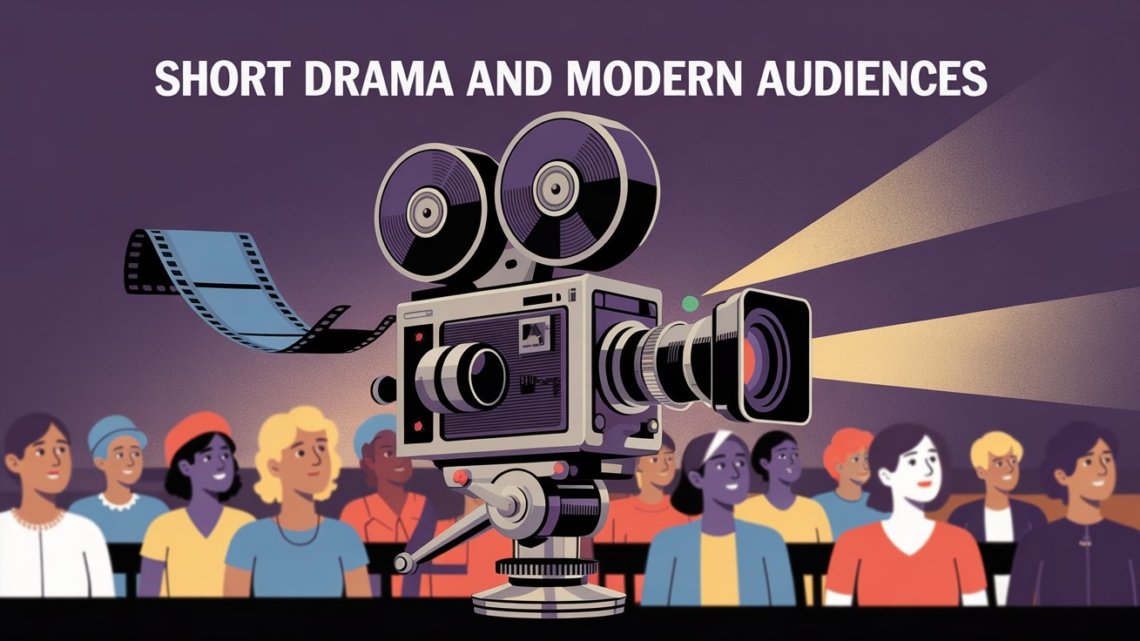In an era defined by fleeting attention spans and digital saturation, short dramas have emerged as a powerful medium, offering quick yet profound emotional experiences. These bite-sized narratives, often spanning just a few minutes per episode, have captivated global audiences, particularly in markets like China and North America. By delivering intense, relatable stories in a condensed format, short dramas serve as “emotional substitutes” for modern viewers craving connection amidst their fast-paced lives.
The Rise of Short Dramas
The meteoric rise of short dramas can be attributed to the evolution of digital platforms and changing viewer habits. Platforms like Douyin (China’s TikTok), YouTube Shorts, and emerging streaming apps have become fertile ground for these micro-series, which typically range from 1 to 15 minutes per episode. In China alone, the short drama market was valued at over $5 billion in 2023, with projections estimating growth to $7 billion by 2026. This boom reflects a shift from traditional long-form television to content tailored for mobile consumption, where viewers can binge entire seasons during a commute or lunch break.
Short dramas thrive on their ability to hook audiences quickly. Unlike conventional TV series that build tension over hours, these narratives rely on sharp writing and immediate emotional stakes. A typical episode might plunge viewers into a family conflict, a romantic betrayal, or a workplace power struggle within seconds, ensuring instant engagement. This accessibility has made short dramas a cultural phenomenon, resonating with younger audiences who prioritize convenience without sacrificing storytelling depth.
Why Short Dramas Resonate
At their core, short dramas are emotional catalysts. They distill complex human experiences—love, loss, ambition, revenge—into compact narratives that deliver catharsis in record time. For modern audiences juggling work, social media, and information overload, these stories offer a quick escape, akin to an emotional “snack.” A 2024 survey by a Chinese media research firm found that 68% of short drama viewers watch to “relieve stress” or “feel something deeply,” highlighting their role as a therapeutic outlet.
The genre’s appeal lies in its versatility. Short dramas span countless themes, from historical epics to urban romances, often infused with cultural nuances that resonate locally while retaining universal appeal. For instance, Chinese short dramas frequently explore themes of familial duty or social mobility, while Western counterparts might focus on individual empowerment or moral dilemmas. This diversity ensures that viewers find stories that mirror their own struggles, fostering a sense of connection in an increasingly fragmented world.
Moreover, short dramas leverage exaggerated yet relatable emotions to captivate audiences. A scorned lover’s tearful confrontation or a hero’s triumphant comeback is amplified to elicit maximum impact, offering viewers a safe space to process their own feelings. This emotional intensity, paired with the format’s brevity, creates a unique viewing experience that feels both indulgent and efficient.
The Psychology Behind the Addiction
The addictive nature of short dramas stems from their alignment with human psychology. Each episode functions like a dopamine hit, delivering a rapid cycle of tension, climax, and resolution. Cliffhangers are a staple, ensuring viewers return for the next installment, often consuming dozens of episodes in one sitting. This mirrors the binge-watching culture popularized by streaming giants like Netflix but compresses it into a format that feels less demanding.
Social media integration further amplifies their reach. On platforms like Douyin, algorithms promote short dramas based on user preferences, creating a personalized viewing experience. Viewer comments and reactions also foster a communal atmosphere, where audiences collectively laugh, cry, or rage at plot twists. This interactivity transforms passive consumption into an active, shared journey, deepening emotional investment.
Challenges and Criticisms
Despite their popularity, short dramas face scrutiny. Critics argue that their reliance on melodramatic tropes and predictable plots can prioritize emotional manipulation over substance. Some series sacrifice character depth for pacing, resulting in stories that feel formulaic. Additionally, the low production costs and rapid turnaround of short dramas can lead to inconsistent quality, with shaky cinematography or rushed scripts undermining the narrative.
Monetization poses another challenge. Many short dramas are free to watch initially but lock later episodes behind paywalls, frustrating viewers. In China, this “freemium” model has sparked debates about accessibility, as fans must weigh their emotional investment against subscription costs. Regulatory hurdles also loom, particularly in markets with strict content censorship, where themes of violence or social critique may be restricted.
The Global Future of Short Dramas
As short dramas gain traction worldwide, their influence is reshaping the entertainment industry. Production companies are investing heavily in high-quality micro-series, recruiting top talent to elevate storytelling. Cross-cultural collaborations are also on the rise, with Chinese studios partnering with Western platforms to create globally appealing content. For example, a 2024 partnership between a Shanghai-based studio and a U.S. streaming service produced a bilingual short drama that topped charts in both regions.
The format’s adaptability ensures its longevity. Short dramas can be tailored to niche audiences, from sci-fi enthusiasts to historical fiction buffs, while their low production barriers empower independent creators. As 5G and mobile technology advance, the genre is poised to become even more immersive, potentially incorporating interactive elements or virtual reality.
Conclusion
Short dramas have carved a unique niche in the digital age, offering modern audiences a quick yet potent dose of emotional resonance. By blending accessibility with storytelling prowess, they provide a surrogate for the human connection many crave but struggle to find in their daily lives. While challenges like quality control and monetization persist, the genre’s ability to evolve and captivate ensures its place in the global entertainment landscape. For viewers seeking a fleeting escape or a mirror to their own emotions, short dramas remain an irresistible substitute—one episode at a time.


Add a Comment